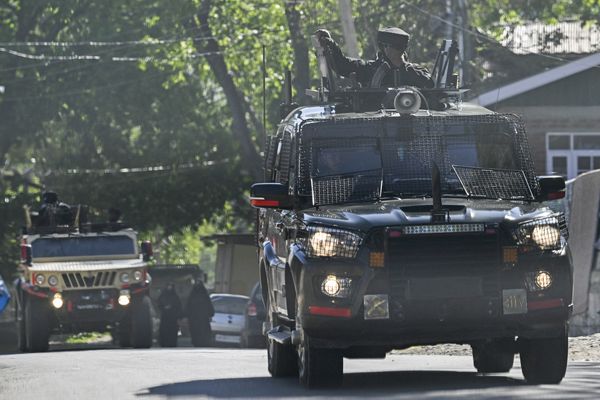
The College of Cardinals that will elect the next head of the Roman Catholic Church will include four Cardinals from India, including a Dalit. Archbishop of Hyderabad Anthony Poola, a 62-year-old who hails from Kurnool district of Andhra Pradesh, is among 138 cardinals eligible to vote for the next Pope.
The three others are Cardinal Filipe Neri Ferrao, Cardinal Baselios Cleemis, and Cardinal George Jacob Koovakad.
Anthony Poola was appointed as the Cardinal-Priest of Ss. Protomartiri a Via Aurelia Antica by Pope Francis on August 27, 2022, making him not only the only Telugu person but also the only Dalit appointed to the College of Cardinals of the Roman Pontiff, which guides the Pope on various matters. Anthony Poola also holds veto power in the Church and had direct contact with the late Pope.
Poola’s journey to the Vatican is noteworthy as it stands out as a symbol against dominant caste oppression. The 62-year-old hails from Kurnool district of Andhra Pradesh. He led the diocese of Kurnool for over 12 years before being appointed as Archbishop of Hyderabad in 2020 by Pope Francis.
Following the appointment in 2022, the Cardinal, in an interview with the National Catholic Register (NCR) and the Quint, said he sees his elevation as an opportunity to advocate for the inclusion of Dalit Christians in the Scheduled Caste category.
Anthony Poola's elevation was seen as the result of relentless struggle and assertion by many Dalit leaders across church denominations and organisations. While bolstering hope amongst Dalit Christians, his elevation also raised expectations of him fulfilling various responsibilities in view of the status of Dalit communities in the Catholic Church.
“We expect him to work extensively to eradicate untouchability in the Church by condemning practices like separate cemeteries and burials, enabled through generations by the dominant caste clergy, and most importantly to emerge as an assertive voice for the Scheduled Category status for Dalit Christians," Franklin Caesar Thomas, coordinator of the National Council of Dalit Christians had told TNM in 2022.
The Constitution (Scheduled Castes) Order, 1950, identifies marginalised communities based on their social, economic and educational backwardness arising from untouchability. The order, however, restricts this categorisation only to those in the list of communities who continue to practise Hinduism. Later, Dalit Sikhs were included in 1956 and Dalit Buddhists in 1990. Dalit Christians and Muslims are still fighting for their inclusion in the category.
This report was republished from The News Minute as part of The News Minute-Newslaundry alliance. Read about our partnership here and become a subscriber here.
Newslaundry is a reader-supported, ad-free, independent news outlet based out of New Delhi. Support their journalism, here.







